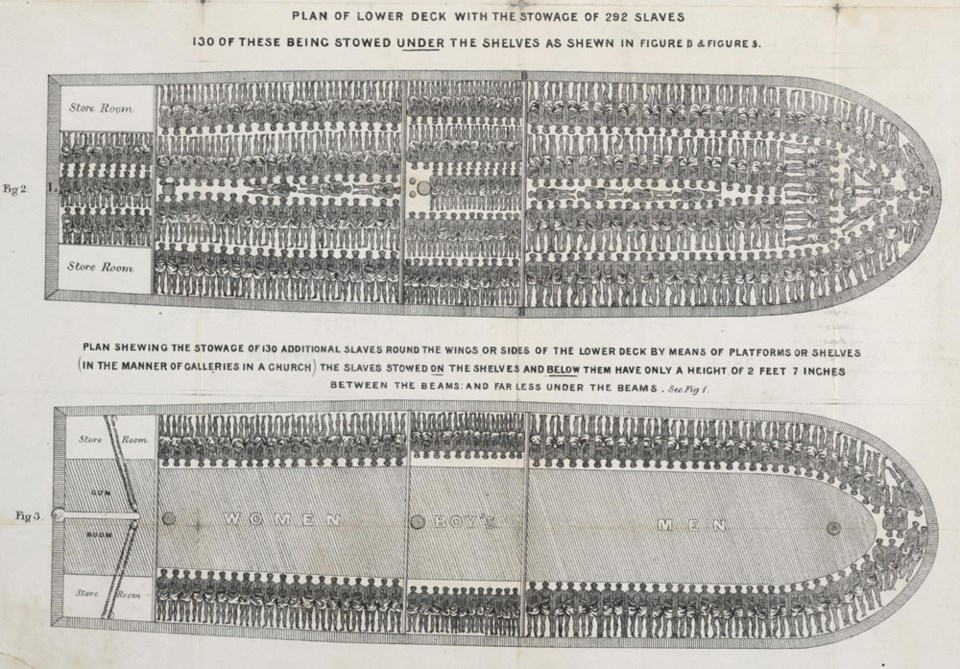Aug. 1 is Emancipation Day in Canada, marking the anniversary of the Slavery Abolition Act coming into effect throughout the British colonies in 1834.
That was the beginning of the end for the legal enslavement of Black and Indigenous people in what would later become Canada.
Emancipation Day has been marked by members of the Black and Indigenous community ever since, as a day to celebrate progress and perseverance but also show resolve in the continuing fight against marginalization and systemic racism.
It gained official recognition in Ontario in 2008 and in March 2021, MPs in the House of Commons voted unanimously to officially declare Aug. 1 as Emancipation Day in Canada. The government of B.C. first recognized the occasion in 2021.
Slavery in Canada
Canadians tend to be dismissive of slavery as an American issue, but our relationship with slavery is far closer than most people know or would like to admit.
According to historian Marcel Trudel., there were about 4,200 Black and Indigenous slaves in Canada between 1671 and 1834 (two-thirds were Indigenous, one-third were Black.) Hundreds of thousands more were enslaved in British colonies. The abolition of slavery here came only 29 years before Abraham Lincoln’s Emancipation Proclamation freeing American slaves during the Civil War.
The impacts of slavery in Canada, however, did not stop with abolition.
Slavery’s legacy
The amount of capital amassed through slaves’ labour that was reinvested in the economy and is still in circulation today is estimated to be in trillions of dollars. This is the basis of arguments for reparations. Slaves were also early collateral in the mortgage business and other industries arose in service of slavery.
In February 2022, North Vancouver resident Guy Heywood came forward with a revelation from his family’s research into their history: The money his ancestors used to finance the early settlement and development of North Vancouver came from a family fortune amassed in the transatlantic slave trade.
To mark Emancipation Day in 2022, the three North Shore libraries hosted a joint lecture featuring June Francis, a Simon Fraser University professor of marketing and business at Simon Fraser University and chair of the Hogan's Alley Society in Vancouver.
Francis addresses the history but also lasting economic harms as well as systemic racism that persists for Black people in Canada 188 years after the first Emancipation Day.
In the lecture, she is joined by Heywood and partner Christine Best to talk about her family’s contributions to Black history.
Francis's illuminating lecture has now been published online.



